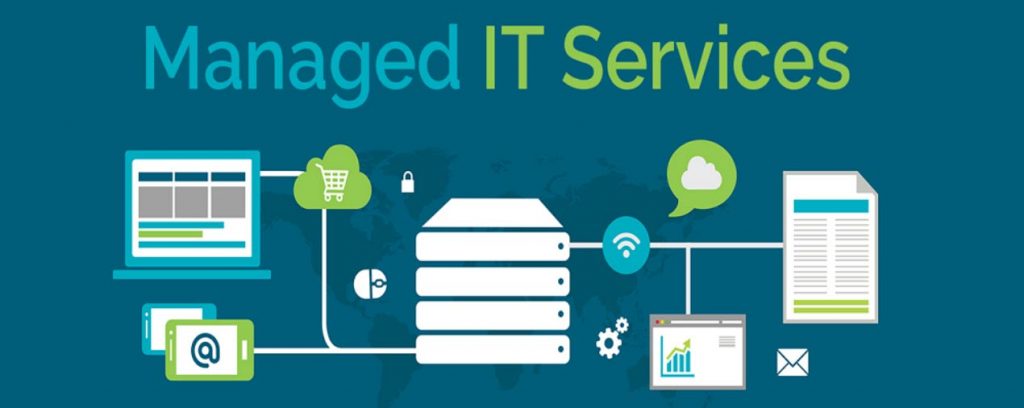
As business requirements only grow more rigorous with each passing year, the role managed service providers play in serving small and medium London businesses with their IT services shows no sign of stopping. Their influence on IT infrastructures and systems can expand into managed services like disaster recovery, managed WiFi solutions, cloud computing, Office 365 email solutions and more.
No matter what size your company is, you may soon find yourself turning to an IT support provider to help your business. After all, the investment is not without merit; MSPs are known to help businesses on various levels, from eliminating the need to pay salaries for an in-house IT team to “future-proofing” IT infrastructures with regular upgrades.
Perhaps it’s time for your business to drop its in-house IT support in favour of an MSP, or maybe you’ve yet to decide. No matter what point you are in your journey, you’ll need to know the full scope of what your business is getting into.
In this article, we’ll cover the basics of managed IT services in London and help you determine how they might improve your overall operations of your IT systems.
What Is A Managed Service Provider?
As modern technology continues to evolve, you’ve probably heard the word “outsourcing” repeated time and time again. Essentially, any service that businesses use to outsource technological operations is an MSP, though, much like businesses themselves, not every offering is built the same.
” Essentially, any service that businesses use to outsource technological operations is an MSP “
You will work with most MSPs on a subscription model; with more support services offered the more you pay. Alternatively, some offer ad-hoc support if you only need one-time IT consulting or a quick-fix for their expertise with a technological issue wither its with your computer, web hosting or disaster recovery processes they will be able to help you as their customer.
Your business’s IT infrastructure — to the extent defined in your contract — management will be performed and maintained by a separate company with a managed service provider. This support tends to be done remotely, but some service providers may offer on-site services for their customers if located close to your company.
The services you receive from your MSP can vary. Still, most will pro-actively monitor your IT infrastructure to spot potential problems, prevent network outages and keep your hardware updated when necessary. More extensive offers can include expertise with cyber security protection, backup/recovery services, cloud computing, email systems, managed WiFi services in London and more.
MSPs aren’t beholden to operational magnitude; London companies of all sized businesses can outsource their IT services regardless of the market they operate, from family run shops to multination corporations – The sky is the limit.
Why Choose An MSP?
Even if your business doesn’t yet require an MSP, it should understand the benefits that come with such a valuable addition to its operations. With your IT infrastructure managed by a third party information technology service team, your business can focus on the things that truly matter — rather than waste time on technological upkeep and monitoring your own IT processes.
” With your IT infrastructure managed by a separate information technology team, your company can focus on the things that truly matter “
Furthermore, managed IT service providers tend to have years of knowledge and expertise in the industry, enabling them to manage even the most rigorous business requirements. Compared to traditionally small in-house IT departments, MSPs have large teams comprised of multiple IT experts hailing from various backgrounds. No matter what troubles your infrastructure faces, an MSP is bound to have an employee who’s dealt with the issue before.
Most importantly, MSPs can save businesses an impressive chunk of money in the long run. In-house IT departments can become costly over time, with companies needing to pay salaries, holiday hours, benefits and more; costs that are a bit hard to swallow, considering the fact you might not even need their services for one-third of the year. Lastly, since on premise teams are usually relatively small, a business can find itself vulnerable if an IT employee is too sick to work.
In comparison, outsourced IT services boast large workforces and can easily provide the ability to replace a missing employee. Their upfront costs to their clients tend to be lower, as your business is only responsible for paying support service fees rather than entire salaries. Some providers even offer ad-hoc services, so you’ll only pay for IT help when you need it.
However, no matter what your agreement looks like, there are some common factors you’ll deal with when working with an MSP: let’s take a look at some of those in further detail.
What to Look for in a Managed IT Services Provider
Outsourcing your IT infrastructure to a third party managed service partner can be frightening, especially if you’re a newcomer. But, much like other services your business utilises, there’s nothing to fear if you’re thoroughly prepared. To ease your hesitation, we’ll go over the critical points to keep in mind when starting your search.
Don’t Discount the Future business needs
Business is all about growth, and you need an MSP who’s ready and willing to propel your operations into the future. Find a managed service provider who’s able to grow alongside your requirements: look for those who offer flexible agreements, large workforces and IT support that can reach multiple locations — whether small or medium sized businesses in London or beyond.
Tell Them What You Want to Know
Managing an entire IT infrastructure is no easy task, and your managed service provider will have no shortage of reports to update you with. This can quickly become overwhelming, and your business should understand what it wants communication to look like: will it come in weekly reports? Monthly? How detailed do you want those reports to be, and what will they focus on? (i.e., updates on every problem they come across, regardless of size, versus updates solely on broader IT issues)
Know Your Contract Expectations
Contracts aren’t inherently evil, but your company should remain careful when it comes to signing off on any agreement with an MSP. Keep a close eye on “small print” to avoid paying any managed service fees you didn’t plan for and ensure you fully understand the length of your contract — 12 months is standard, but some may allow you to break things off if you’re unsatisfied.
Don’t Get Stuck in The Past
The technology companies will utilise five years from now could be unrecognisable compared to present-day tech. As such, you need a managed IT services provider who has the capabilities to adapt to any significant changes in your requirements. Preferably, the MSP you choose will provide you with a roadmap or estimate of how they’ll keep your business up to date with the latest in technology.
Understand Your service Helpdesk’s Limitations
Most MSPs provide helpdesks in their service packages, and it’s easily the most crucial aspect for management of your IT infrastructure. Even if their employees pack up and head home once evening arrives, it’s hard to find a modern business that isn’t a 24/7 operation thanks to technology.
A helpdesk can keep your business’s online presence safe and secure at all times of the year, but some are not without limitations. First and foremost, don’t settle for anything less than a 24/7 helpdesk — disaster can strike at any second, and you don’t want to be caught empty-handed. You want to make sure your chosen partner can provide support via remote access as well as perform proactive remote network mentoring. Furthermore, it’s essential to know where the helpdesk is based; you won’t gain much use if it’s located in a geographic area prone to natural disasters or power outages.
Do You Need a Managed IT Services Provider?
Businesses around London — and the world — are turning to MSPs for IT assistance and remote management more than ever, whether for simple consulting or full-scale infrastructure management. Your business could soon join the growing ranks, but perhaps you’re still stuck on a single crucial question: how do I know when it’s time to switch to a new service provider?
Unfortunately, there isn’t a strict answer considering how many factors can influence your decision — but by examining your own business, you should know where you stand. Examine the points listed below; the way you answer should clarify whether or not an MSP could benefit your business.
On Premise IT Assistance
Some businesses just aren’t cut out for a full in-house IT department — especially smaller sized businesses. Ask yourself this: can you justify the cost of in-house services? Or will your in-house employees still require outsourced managed services aid to comply with your more significant technological support requirements?
Cost of their services
Your business should also consider how compatible it is with purchasing outsourced managed services. Does it approve a fixed monthly fee? Is it comfortable signing a 6-month or even 12-month subscription model agreement?
Cyber Security
While many managed service providers pride themselves on keeping their customers information safe through a variety of modern means, you might not be comfortable sharing sensitive documents. In contrast, an outsourced service provider could have the resources to keep the security of your companies data safer than an in-house team: it all comes down to what your choices — and limitations — are.
Expansion
Is your business looking to partner with a IT company with the expertise to transfer its data into a cloud based service? Incorporate remote working services in the future? Move one or more of its self hosted platforms to an Office 365 based solution? Frankly, nothing beats MSPs when it comes to expansions, as you won’t be responsible for transferring an in-house IT team to another location or managing a cloud service by yourself.
Ultimately, outsourced support is a managed service worth looking into — even for small businesses. And, by the looks of it, it’s a trend that doesn’t show signs of stopping.
Still on the fence? Don’t worry — our services team is always available to answer any questions you might have. Reach out to one of our IT experts today and find out how our managed IT services can push your business ahead of the competition.









